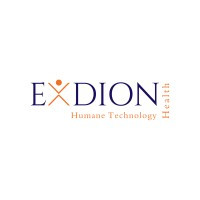The Unseen Revolution: Revenue Cycle Management in Healthcare

Strong 8k brings an ultra-HD IPTV experience to your living room and your pocket.
2020 was a wild year for healthcare. While frontline workers battled the pandemic, there was also a quiet revolution happening behind the scenes. The administrative side of healthcare, specifically revenue cycle management (RCM), was undergoing a major transformation. RCM is essentially the financial process of tracking patient service revenue using medical billing software. From registration to final payment, RCM ensures a smooth flow of healthcare reimbursement. Let’s take a closer look at this process, its challenges and opportunities, and how AI and auto-coding are shaping its future.
Breaking Down E/M Coding Changes
In 2021, the American Medical Association (AMA) shook things up by updating Evaluation and Management (E/M) codes for the first time in three decades. This means doctors now have more flexibility in choosing a code based on their time spent with patients or medical decision-making. The main goal was to simplify things for doctors while also improving data collection on patients. And it’s not just a change from the AMA – Medicare’s Physician Fee Schedule will now align with these new codes, making it the standard for all payers.
The Impact of COVID-19 on RCM
The COVID-19 pandemic certainly threw a wrench in many aspects of our lives, including revenue cycle management for healthcare providers. RCM teams have struggled as a result, but their resilience and ability to adapt have been truly commendable. From navigating the uncertainties of delayed or cancelled procedures to adjusting to new coding and billing regulations, RCM professionals have had to continuously evolve and find solutions in the midst of a constantly changing landscape. However, despite these challenges, effective Healthcare revenue cycle management Solutions remains crucial for efficient healthcare operations. As we look towards a post-COVID-19 world, it will be interesting to see how RCM continues to evolve and adapt to new norms and regulations that may emerge. It’s essential for coders, billers, and other RCM professionals to stay informed and adaptable in order to ensure successful revenue cycle management in the future.
The Importance of Education and Training
In order to achieve success in coding and billing, effective communication and proactive measures are crucial. However, without proper education and training, these efforts would be incomplete. In fact, with constant updates to coding sets and payer policies, regular training sessions for team members and clinicians have become necessary. By providing ongoing education and training opportunities, organizations can ensure that their team members stay updated and informed about the latest coding trends and policies. Moreover, education and training also play a crucial role in accurate documentation. By keeping everyone informed and updated, providers can understand their documentation requirements better, resulting in more accurate notes. This not only helps with denials prevention but also ensures that coders have all the necessary information to code correctly.
Leveraging Technology for RCM
Technology plays a crucial role in modern healthcare, and its impact on revenue cycle management can’t be ignored. Thanks to tools like practice management and computer-assisted coding, healthcare organizations are now able to streamline their coding and billing processes more efficiently than ever before. Even during the pandemic, these advanced systems were able to quickly adapt to new codes and services. AI and natural language processing have been particularly helpful in managing these changes. These technologies, also known as computer-assisted coding, can go through patient records and find the right codes based on clinical documentation. However, it’s important to note that manual coders are still needed to ensure the accuracy of coding. This highlights the importance of combining technology with human expertise in RCM.
Note: IndiBlogHub features both user-submitted and editorial content. We do not verify third-party contributions. Read our Disclaimer and Privacy Policyfor details.



